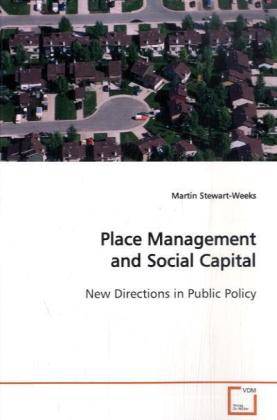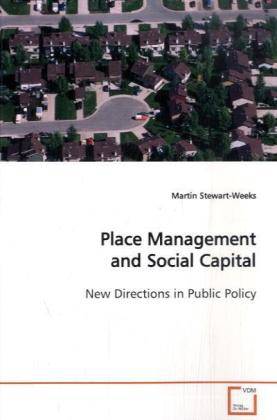
- Afhalen na 1 uur in een winkel met voorraad
- Gratis thuislevering in België vanaf € 30
- Ruim aanbod met 7 miljoen producten
- Afhalen na 1 uur in een winkel met voorraad
- Gratis thuislevering in België vanaf € 30
- Ruim aanbod met 7 miljoen producten
Zoeken
Place Management and Social Capital
New Directions in Public Policy
Martin Stewart-Weeks
Paperback | Engels
€ 58,45
+ 116 punten
Omschrijving
Place management as a framework for public governance is not a new concept. The place management debate reflects many of the more durable themes in the evolution of public management and public policy. One of the new dimensions of the debate is the extent to which place management can deliver a social capital effect. If it can, its value as a major shift in public governance will increase dramatically. The study situates place management in a spectrum of possibilities. To the extent that place management transcends an instrumental definition to challenge the underlying system of governance, it is more likely to deliver a social capital dividend. The study concludes that place management, if it reflects and reinforces the attributes of social capital, it can made a major contribution to public management. A key question is the extent to which place management can be institutionalized as a core and consistent component of public management. The thesis looks at the prospects for the institutionalization process within the context of a "holistic governance" framework.
Specificaties
Betrokkenen
- Auteur(s):
- Uitgeverij:
Inhoud
- Aantal bladzijden:
- 140
- Taal:
- Engels
Eigenschappen
- Productcode (EAN):
- 9783639127225
- Verschijningsdatum:
- 22/02/2009
- Uitvoering:
- Paperback
- Formaat:
- Trade paperback (VS)
- Afmetingen:
- 152 mm x 229 mm
- Gewicht:
- 213 g

Alleen bij Standaard Boekhandel
+ 116 punten op je klantenkaart van Standaard Boekhandel
Beoordelingen
We publiceren alleen reviews die voldoen aan de voorwaarden voor reviews. Bekijk onze voorwaarden voor reviews.











